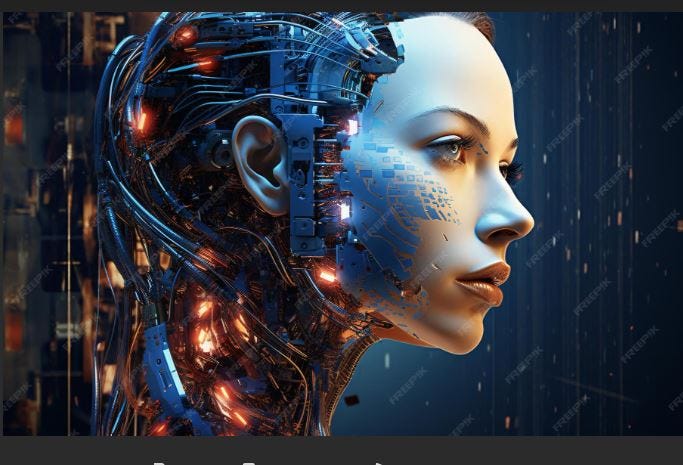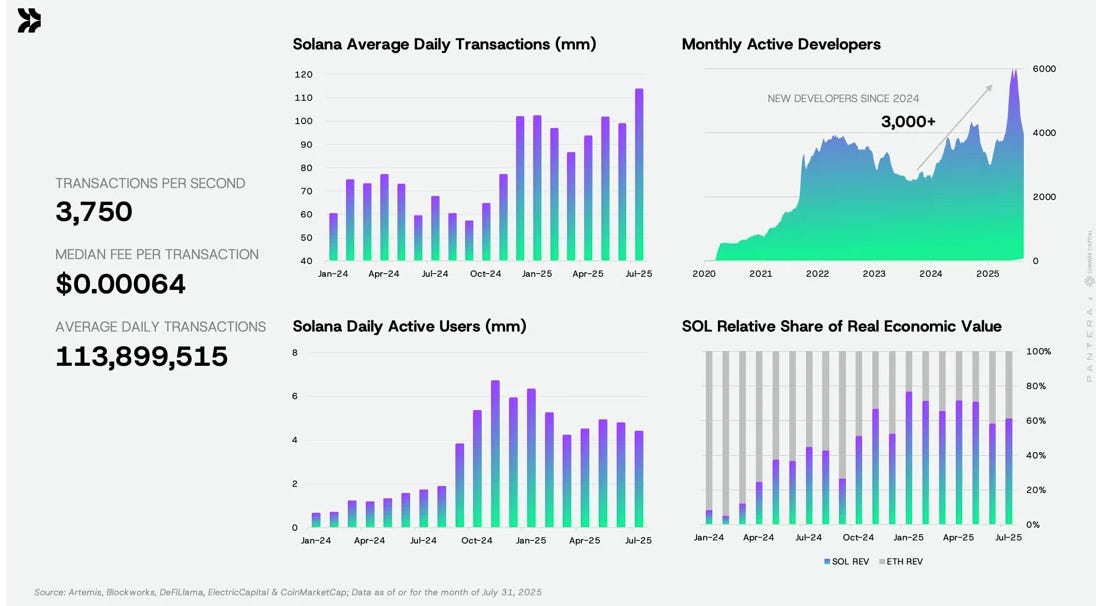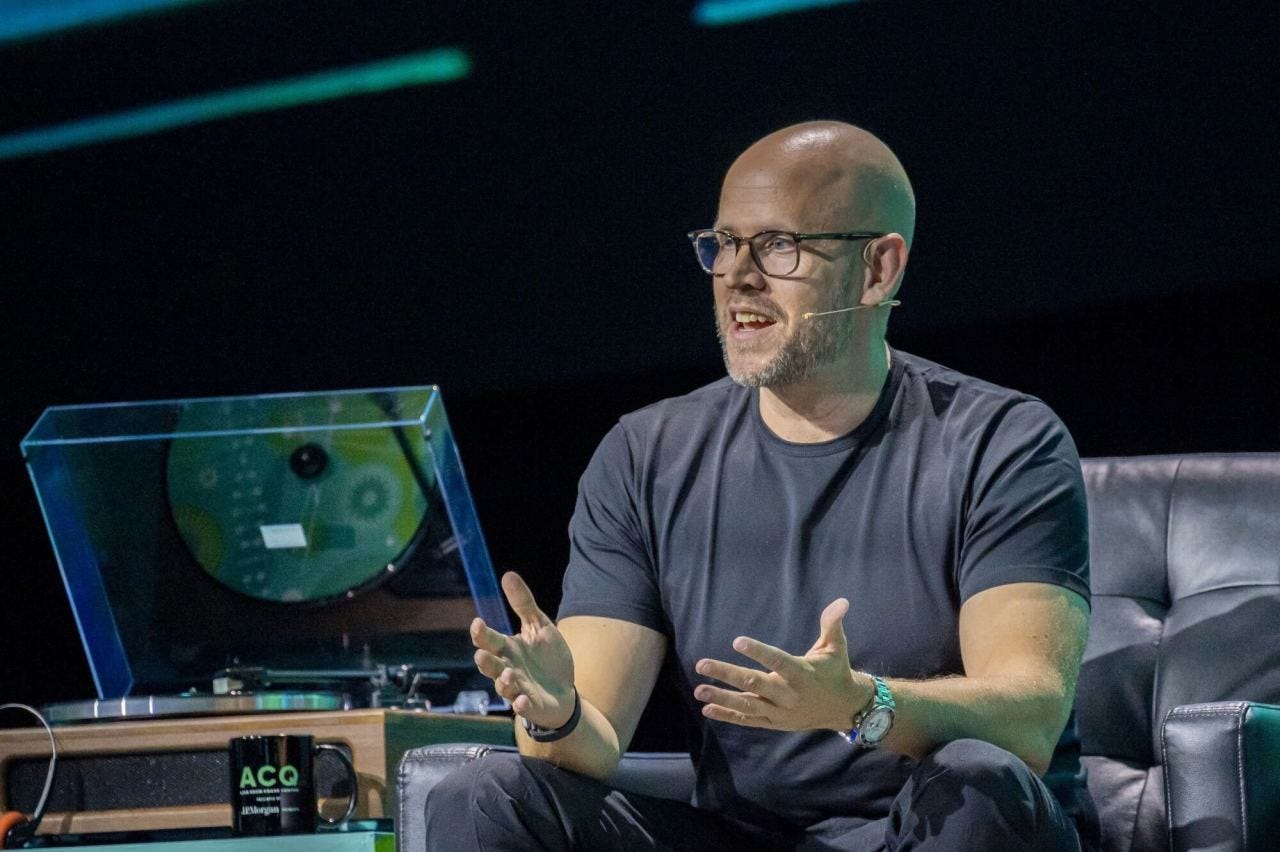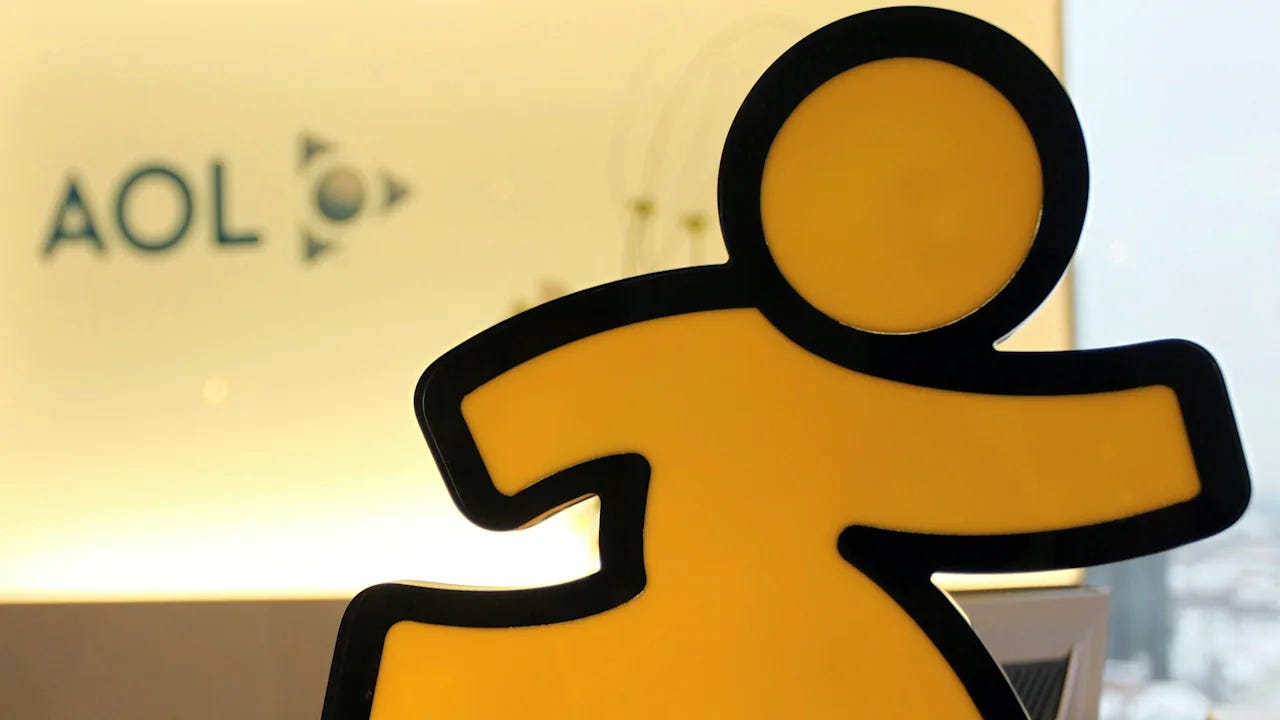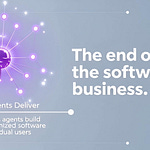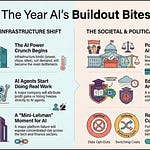Note: A shortened newsletter this week and no Video as Andrew and I are both traveling.
Contents
Editorial: The Great Platform Pivot: When AI Companies Become Everything Companies
Essays: Branko Milanovic, Ben Thompson, Doc Searls, Substack, Robinhood, Solana Treasury
AI: OpenAI Sora, Instant Checkout, Perplexity Comet, a16z AI Spending Report, Apple AI glasses, Cerebras, Periodic Labs, and more
Venture: Evantic Capital, True Ventures, Touring Capital, SignalRank, democratization of VC, a16z leaked decks
Regulation: California AI safety law, UK pension reform, Doctorow’s Enshittification, Disney vs Character.AI, Robinhood prediction markets
Media: Daniel Ek steps down as Spotify CEO
Startup of the Week: Carta clip – Founder branding as business strategy
Post of the Week: AOL finally discontinues dial-up
Editorial
The Great Platform Pivot: When AI Companies Become Everything Companies
This week was not just another step in the relentless AI news cycle. It was the moment OpenAI stopped being a company that provides AI and started being a company that is a platform. A destination. A competitor to everyone who already owns your attention and your wallet.
Sam Altman’s flourish about Sora 2 — “a Cambrian explosion of creativity” — is not a marketing line. It’s a shot across TikTok’s and YouTube’s bows. Sora is not an app; it’s a front door to the creator economy. And OpenAI didn’t stop there. By introducing Instant Checkout and the Agentic Commerce Protocol, they opened a second front against Amazon and Shopify. That’s not an app launch. That’s a $6 trillion market squarely in the crosshairs.
What we are watching is the platform pivot. AI companies are evolving from being infrastructure to being the place where demand originates, where transactions complete, where culture is made. They’re ceasing to be tools and becoming everything companies.
The Copyright Gambit
The cleverest and most aggressive move this week was not product but policy. OpenAI’s opt-out copyright frameworkflips the default: your work is in the training set unless you chase them down to remove it.
That’s not a footnote. It’s a power move. It says: we move first, you catch up later. It is innovation by fiat, creator rights turned into a defensive game. The message to artists and studios is stark — adapt to our pace or get left behind.
Venture’s Identity Crisis
While OpenAI rewrites the rules, venture capital is discovering it isn’t immune to disruption.
AI systems are already promising to automate deal flow.
New models like Evantic Capital’s permanent capital vehicle challenge the sacred 10-year fund cycle.
Regulation is broadening access, with accreditation shifting from wealth to expertise.
The irony? The very industry that funded AI’s ascent is now in AI’s blast radius. And here’s the twist: AI can pattern-match on historical winners, but it can’t (yet) see the weird, contrarian bets that define venture-scale returns. That’s where humans still matter — for now.
Regulation Enters the Ring
California just passed the first serious AI safety law. When California regulates, America often follows.
The signal is clear: voluntary guidelines are over. Formal guardrails are beginning. But the question remains: can laws written for the past move fast enough to constrain technologies rewriting the present?
Why This Matters
When one company controls both the infrastructure of intelligence and the consumer platforms built on top, the market is no longer competitive terrain. It’s a colony. OpenAI’s play is breathtaking in scope — but it risks becoming anti-competitive at a scale we’ve never seen.
And the opt-out copyright move is not just clever — it’s corrosive. It makes every creator weaker in the bargain. Take it or leave it, even when “it” is your own work.
What to Watch
Platform concentration: Will regulators let one company straddle infra + consumer?
Creator backlash: Will major studios, unions, and independents accept the opt-out default?
VC recalibration: Does venture become more mechanical, or does human contrarianism retain an edge?
Regulatory dominoes: Does California’s law trigger a state-by-state patchwork?
Bottom line: This is the great platform pivot. AI is no longer the thing you use inside an app. It is becoming the app, the platform, the marketplace, and the regulator of access. The question is not whether this shift continues. The question is whether our rules for competition, copyright, and capital allocation evolve quickly enough to keep pace.
Key themes:
Sora 2 & Instant Checkout – OpenAI goes after TikTok, YouTube, Amazon, and Shopify.
The Copyright Gambit – shifting responsibility to creators via opt-out training data.
Venture’s Identity Crisis – permanent capital, AI-driven deal sourcing, and new accreditation rules.
California’s AI Law – the first binding AI safety regulation in the U.S.
Bottom line: AI companies are no longer tools; they are becoming destinations.
Essays
“Capital always gains at labor’s expense unless ownership broadens.”
“AI starts with intent, Meta started with ads.”
“Tokenization is a freight train that will eat finance.”
AI
OpenAI’s New Sora Video Generator to Require Copyright Holders to Opt Out – WSJ
AI could give Silicon Valley financiers a run for their money – FT
Sora 2 – Sam Altman blog
A new a16z report looks at which AI companies startups are actually paying for – TechCrunch
Perplexity’s Comet AI browser now free; Max users get new background assistant – TechCrunch
Apple shelves Vision Pro overhaul to focus on AI glasses – TechCrunch
OpenAI is launching the Sora app, its own TikTok competitor, alongside the Sora 2 model – TechCrunch
Former OpenAI and DeepMind researchers raise $300M seed to automate science – TechCrunch
Data & AI Infrastructure Are Fusing – Tomasz Tunguz
Venture
Regulation
Media
Daniel Ek steps down as Spotify CEO
Startup of the Week
[Founder branding is business building](



